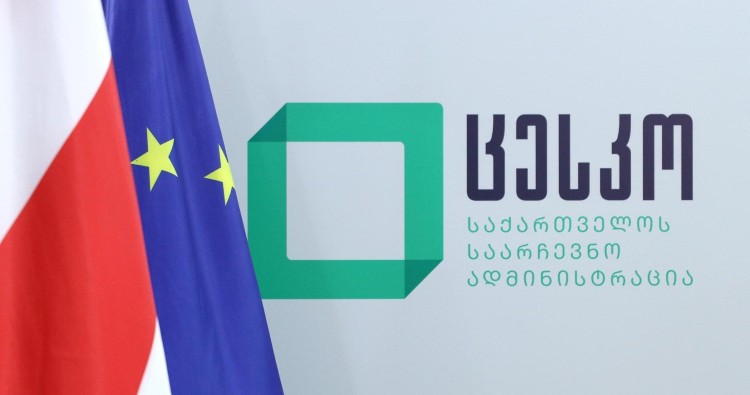Ex-Pres. Saakashvili “openly trying” to discredit electronic voting with misinformation - Election Commission

The CEC also noted that Saakashvili’s statement that electronic voting would “cancel the elections” was also an untruth, citing that the eight pilot projects, conducted in 16 municipalities, had shown that the use of electronic technologies facilitated “openness, simplifying voting day procedures, and making the process completely transparent”. Photo via CEC
The Central Election Commission of Georgia on Tuesday said the imprisoned former President Mikheil Saakashvili was “openly trying” to discredit electronic voting by spreading misinformation, alleging that the new system “is analogue to the Russian one” and would “cancel the elections”.
Commenting on Saakashvili’s statements last week, the Commission called the former President’s claims “a lie”, and noted that “at a crucial stage” of the modernisation process, the election system “has once again become the target of a discrediting campaign”. The electronic voting introduced in Georgia is “dramatically different” from the Russian system and is “much more secure”, the body stressed.
The modernised Georgian election system is secure against “any interference”, including cyber attacks, the CEC said, adding the Georgian electronic voting, which gained “multi-party” support in the Parliament, did not use the internet in either the verification or vote counting component, unlike the Russian one.
The international company Smartmatic, which is a “global leader in election industry” and has modernised more than 115 elections in 30 countries, including the United States, Canada and Belgium, is providing partnership and support to the Georgian Election Commission, the body emphasised, stressing the operating system would be “thoroughly audited” by an American independent laboratory and its conclusions would be public.
The CEC also noted that Saakashvili’s statement that electronic voting would “cancel the elections” was also an untruth, citing that the eight pilot projects, conducted in 16 municipalities, had shown that the use of electronic technologies facilitated “openness, simplifying voting day procedures, and making the process completely transparent”.
The body called on the parties involved in the election process, as well as international organisations and the diplomatic corps accredited in Georgia, to respond to the disinformation campaign aimed at discrediting electronic elections in order to “protect the interests of voters”.
 Tweet
Tweet  Share
Share